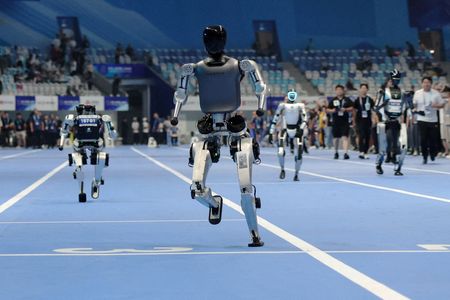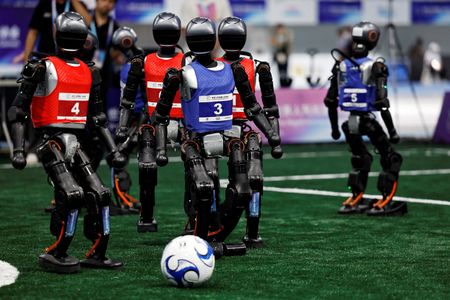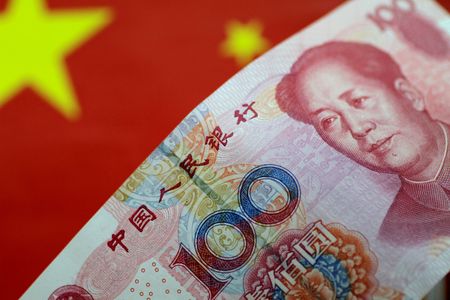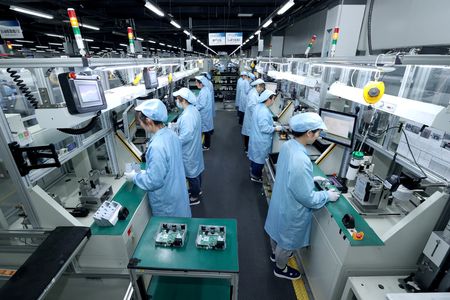By Liam Mo and Brenda Goh
BEIJING (Reuters) -China kicked off the three-day long World Humanoid Robot Games on Friday, looking to showcase its advances in artificial intelligence and robotics with 280 teams from 16 countries.
Robots competed in sports such as track and field, and table tennis, as well as tackled robot-specific challenges from sorting medicines and handling materials to cleaning services.
Teams came from countries including the United States, Germany and Brazil, with 192 representing universities and 88 from private enterprises such as China’s Unitree and Fourier Intelligence. Competing teams used robots from Chinese manufacturers such as Booster Robotics.
“We come here to play and to win. But we are also interested in research,” said Max Polter, a member of HTWK Robots football team from Germany, affiliated with Leipzig University of Applied Sciences.
“You can test a lot of interesting new and exciting approaches in this contest. If we try something and it doesn’t work, we lose the game. That’s sad but it is better than investing a lot of money into a product which failed.”
At the robot games in Beijing, which charged 128 to 580 yuan ($17.83-$80.77) for tickets, humanoids crashed into each other and toppled over repeatedly during football matches, while others collapsed mid-sprint during running events.
During one football match, four robots crashed into each other and fell in a tangled heap. In the 1500-metre running event, one robot suddenly collapsed while running at full speed, drawing gasps and cheers from spectators.
Despite frequent tumbles requiring human assistance to help robots stand, many managed to right themselves independently, earning applause from audiences.
Organisers said the games provide valuable data collection opportunities for developing robots for practical applications such as factory work.
Football matches help train robots’ coordination abilities, which could prove useful for assembly line operations requiring collaboration between multiple units, commentators said.
China is investing billions of dollars in humanoids and robotics as the country grapples with an ageing population and growing competition with the U.S. over advanced technologies.
It has staged a series of high-profile robotics events in recent months, including what it called the world’s first humanoid robot marathon in Beijing, a robot conference and the opening of retail stores dedicated to humanoid robots.
Morgan Stanley analysts in a report last week noted a surge in attendance to a recent robot conference from the general public compared to previous years, saying this showed “how China, not just top government officials, has embraced the concept of embodied intelligence.”
($1 = 7.1805 Chinese yuan renminbi)
(Reporting by Liam Mo and Brenda Goh; Editing by Michael Perry)















